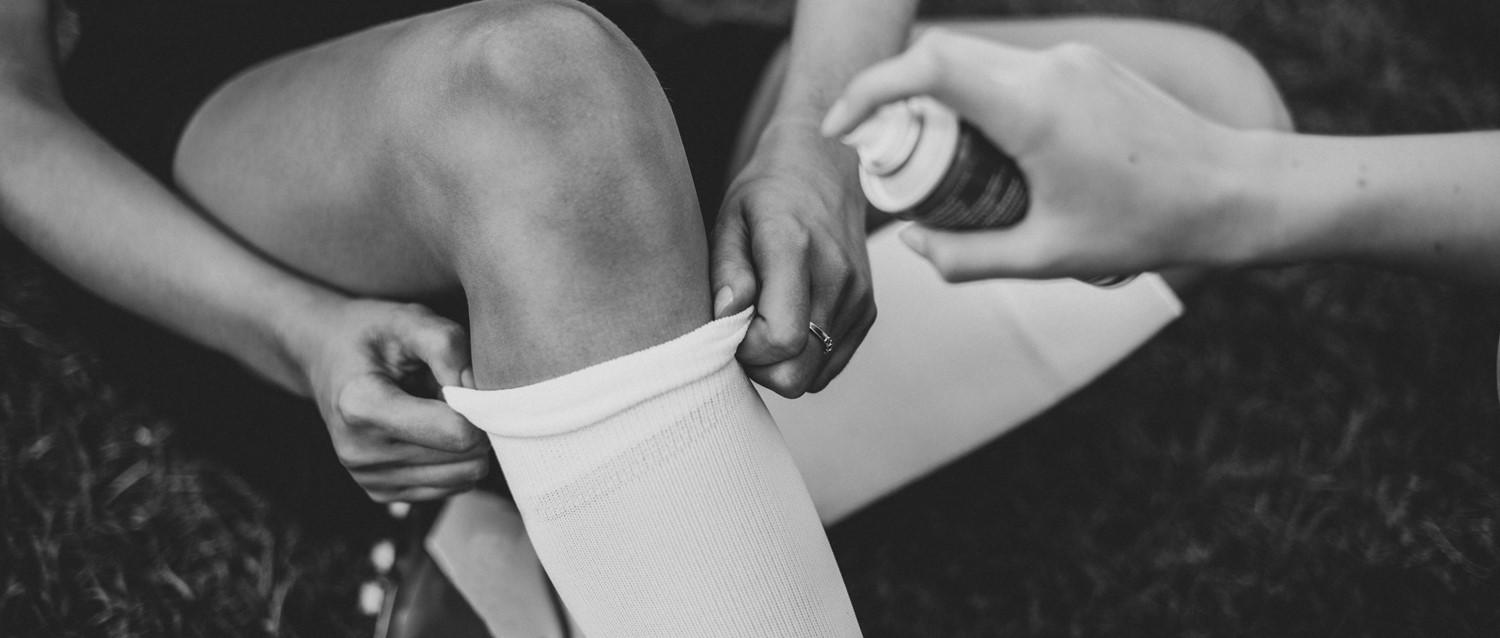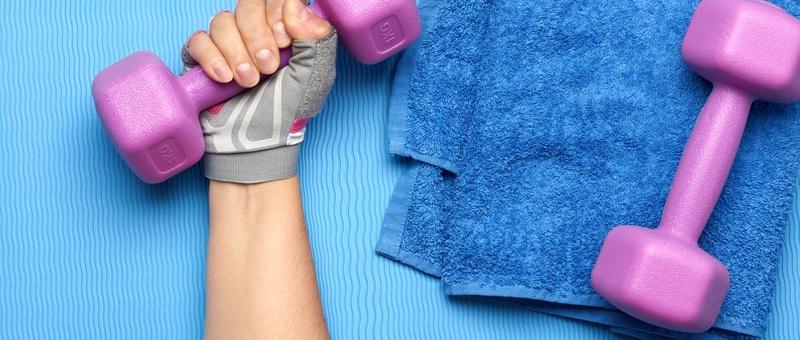
Les raisons les plus probables de vos douleurs musculaires
Peer reviewed by Dr Colin Tidy, MRCGPLast updated by Dr Sarah Jarvis MBE, FRCGPLast updated 31 Jan 2019
- TéléchargerTélécharger
- Partager
If you're always busy, rushing about and feeling stressed, it's likely to be a recipe to end up with muscle strains. The good news is there are some simple tips to keep you moving.
Dans cet article :
Poursuivre la lecture ci-dessous
Back and neck pain
One of the most common places to strain a muscle is in your back, including your neck - more than four in five people get low back pain at some point.
This part of your back is largely made up of muscles, which connect in a complicated grid with your spine, providing support and flexibility. Most low back pain is classed as 'simple' (meaning there's no specific cause found, not that it doesn't hurt!). It can be down to strains of the tough connecting ligaments that support the spine, or minor misalignment of one of the many small joints that connect the spinal bones. But it's often due to a muscle strain.
For low back pain sufferers, recommended treatment used to include strict bed rest - but now doctors know that can actually slow down your recovery. It's important to keep as active as your pain will allow, building up your activity over days but avoiding heavy lifting or strenuous exercise. Painkilling tablets or anti-inflammatory gels may ease the pain in the meantime. If it doesn't settle quickly, speak with your GP about a referral to a physiotherapist.
A few simple steps will help avoid low back pain:
Avoid lifting heavy objects if you can. Your back will thank you for taking several small loads rather than one big one.
If you do lift, keep your back straight, bend from the knees rather than the back and lift objects straight ahead, rather than at an angle.
Patient picks for Muscle problems

Os, articulations et muscles
How to build muscle mass after weight loss treatment
Losing a significant amount of weight - especially if it happens too quickly - can have a negative impact on your muscle health. Your body may break down muscle tissue to use as energy, leaving you weaker and less resilient. That’s why it’s important to focus on rebuilding and strengthening your muscles, so you can restore what was lost and support your long-term health.
par Victoria Raw

Os, articulations et muscles
Traumatismes répétés
Repetitive strain injury (RSI) is a condition where pain and other symptoms occur in an area of the body which has done repetitive tasks (often the arms, wrists or hands). Repetitive strain means strain related to actions which are frequently repeated.
par le Dr Colin Tidy, MRCGP
Douleur à l'épaule
Aching shoulders are also very common, and this is often down to posture or a problem with your neck. Stress often makes muscles tense, but posture can play a major part, too.
If you're spending long hours at your computer working, be desk-savvy. Face your computer directly; sit up straight (think Grace Kelly rather than the Royle family); and take regular breaks to get up from your seat, rolling your neck and shoulders around.
Remember RICE
Other sprains and strains respond well to anti-inflammatory tablets, as well as RICE. Not the kitchen cupboard kind, but:
Rest.
Ice (never applied directly to the skin).
Compression (Tubigrip, etc).
Elevation (lie back with the affected part up on a cushion).
Poursuivre la lecture ci-dessous
Statin side-effects
There's much debate about how many people get muscle aches as a side-effect of statin tablets. That's partly because it's human nature that if you know a medical problem might be caused by a drug, you're more likely to assume the drug is to blame if you get that symptom.
For instance, in some drug trials comparing an active with a placebo (inactive) comparator, one in four people taking the placebo had to come off the trial because of side-effects they were told might occur if they were on the active half of the trial. The most likely figure is somewhere in the region of one in 10.
Statin-related muscle pain is usually mild and temporary, but occasionally it can be very serious. If it's troublesome, your doctor may be able to switch you to a different statin with fewer side-effects. The problem can be made much worse if you also take other medicines, including some antibiotics like erythromycin or clarithromycin. If you're taking statins and get worsening or severe muscle pain, do see your GP.
Polymyalgie rhumatismale
'-Algia' is the medical term for pain, and 'poly-' means many. Polymyalgia rheumatica, or PMR, is a condition which causes severe muscle aches, mostly at the top of your arms, shoulders and sometimes thighs.
It's easily diagnosed with a blood test called ESR, and can be treated with steroid tablets. You'll need to take these for several months or occasionally years, but the aim will be to taper them off eventually under your doctor's instructions. Fortunately, it's rarely permanent, although you may need to increase your steroid dose in the short term if symptoms flare up when you tail them off.
Whatever you do, don't stop your steroid tablets suddenly. It's fine to stop straightaway after a short course of steroids lasting a week or two. But if you're on longer-term steroids, stopping too quickly can lead to severe symptoms including muscle weakness, tiredness, joint and body pain, nausea and dizziness or even collapse.
Poursuivre la lecture ci-dessous
Céphalées de tension
Tension headache - the vague ache around your temple or behind your eyes, which doesn't stop you doing things but can make life miserable - is now thought to be largely down to muscle spasm.
Anti-inflammatory tablets like ibuprofen can be particularly good for this. For many muscle pains, supermarket own-brand tablets are fine, but for tension headaches, you may want to invest in a branded 'rapid relief' version, which does start to work more quickly.
General tips to help beat muscle pain
A warm bath or shower can soothe and relax tense muscles.
So can a gentle massage - drop a hint to your other half!
One for women: avoid high heels for long periods to avoid aching muscles and sprains. Kitten heels can be deeply glamorous!
Nous remercions le magazine "My Weekly", qui a publié cet article à l'origine.
Historique de l'article
Les informations contenues dans cette page ont été évaluées par des cliniciens qualifiés.
31 Jan 2019 | Dernière version

Demandez, partagez, connectez-vous.
Parcourez les discussions, posez des questions et partagez vos expériences sur des centaines de sujets liés à la santé.

Vous ne vous sentez pas bien ?
Évaluez gratuitement vos symptômes en ligne